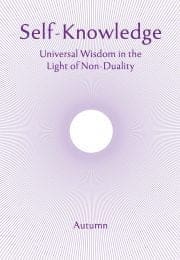How to Be Popular
Popularity is generally thought of as one of life’s desirable comforts, and if it is achieved, its subsequent loss tends to weigh heavily on our hearts, and often gives rise to an exaggerated sense of failure. To be popular is often the outcome of success in our enterprises, although we sometimes forget that no human being can retain the love of the people for long, and that prize-winners and champions are bound to be outperformed in the course of time; their names, if not forgotten, will be hard to recall.
But there is another form of popularity that has nothing to do with personal eminence or with being viewed as an exceptional and uniquely gifted individual. It concerns not the way we rank with other people, but how they rank with us. In fact, the way of wisdom has nothing to do with our graded evaluation or snap judgment of the worth of particular individuals. It is based on our recognition of the deepest aspect of human nature, and our understanding that there is one Self in all.
This idea of universal equality at the deepest level is expressed in a striking way in the Brihadaranyaka Upanishad. There is a terse warning (in part two, section four, paragraph six) for those who insist on their fundamental and real difference from others. The statements affirm that this narrow and divisive way of looking on one’s fellow humans—or any living beings—as ‘different from the Self’, will never win the love of the people, who will recognise that they are rejected by us, and who, in turn, will reject us when the opportunity presents itself:
The Brahmin rejects one who knows him as different from the Self; the warrior rejects one who knows him as different from the Self; the worlds reject one who knows them as different from the Self; the gods reject one who knows them as different from the Self; the beings reject one who knows him as different from the Self; all reject one who knows it as different from the Self; for all this is in truth the Self alone.
The teaching warns against hypocrisy. If our affection and regard are feigned, the people won’t really be deceived or misled. They will know that really, we are regarding them as inferiors, and they in turn will reject or ‘oust’ us (as one translator puts it) because of this alienation.
The answer is for us to learn how to appreciate the essential excellence of all, by virtue of the immutable reality or ‘light’ that ever abides in the core of our being. Besides, it is futile to judge others based on appearances, casual encounters, or hearsay. We experience, often wrongly, only an infinitesimal part of what they are. All possess good qualities, which will manifest and surprise us, if we approach or receive them with patience, empathy and interest, based on the recognition of one essential Self in all.
As the poet Ibrahim Zauq has written:
In this world of forms, O Zauq,
there are a million appearances.
All are the creations of the Supreme Artist
and none is mediocre.


